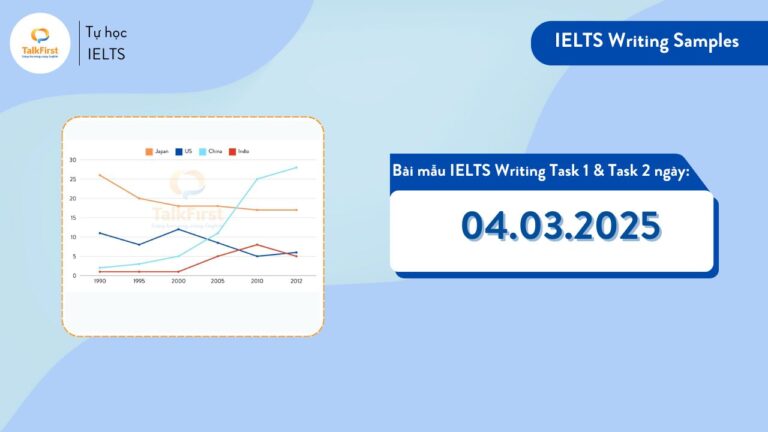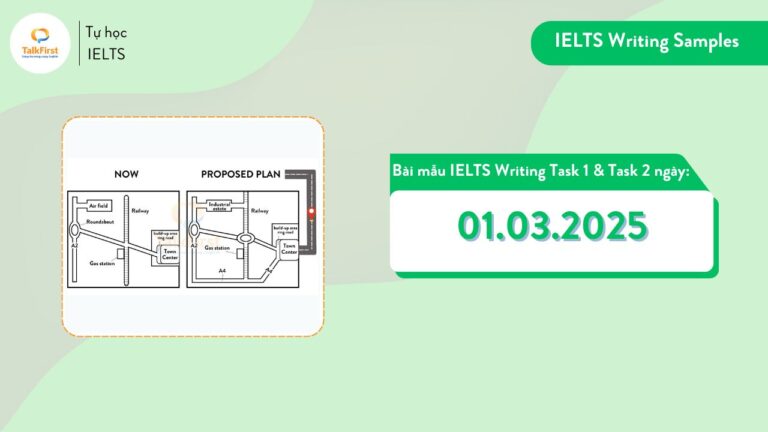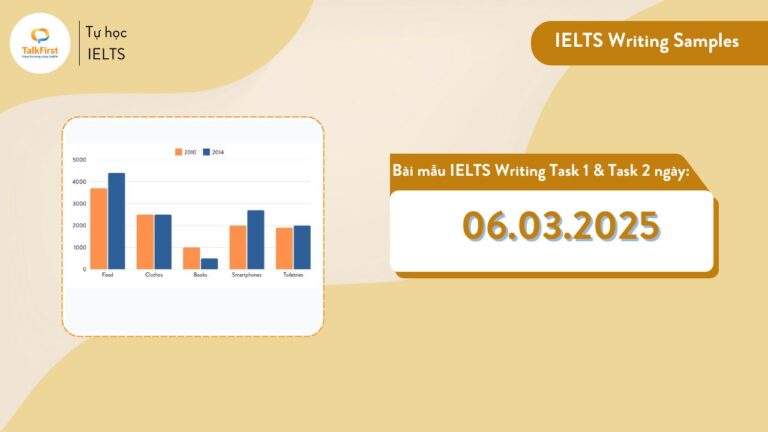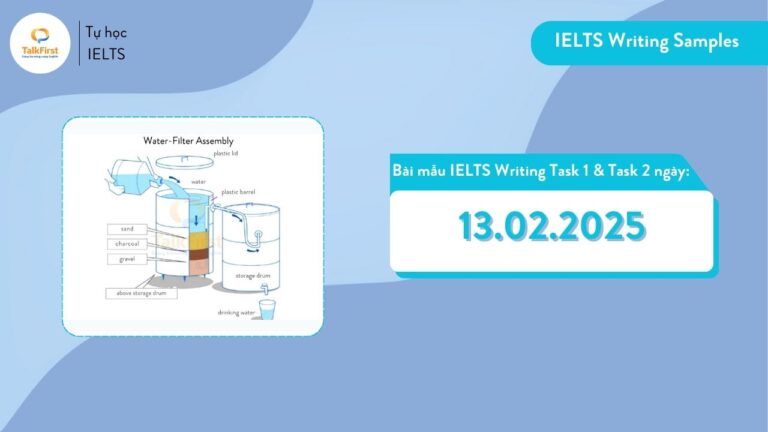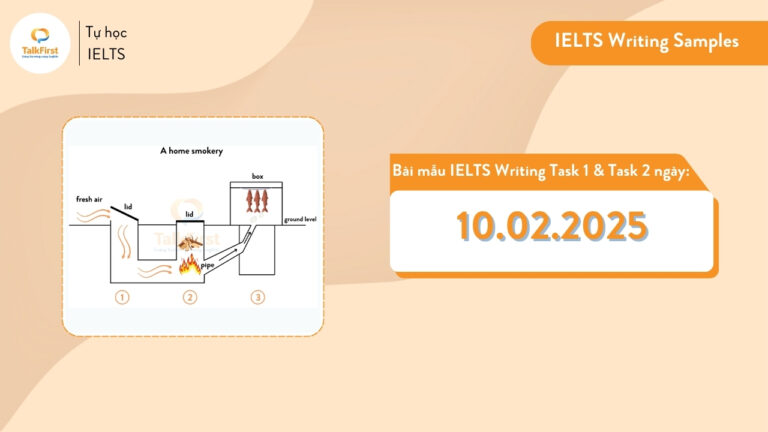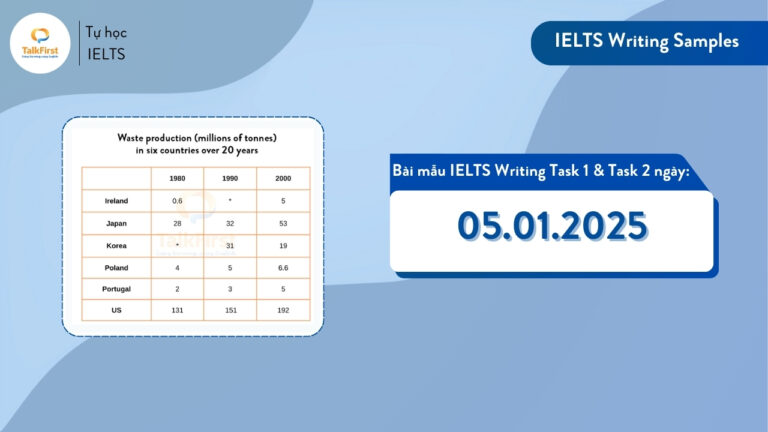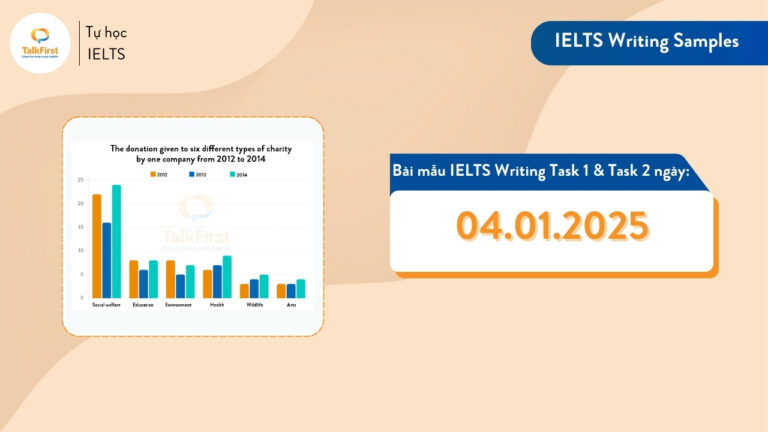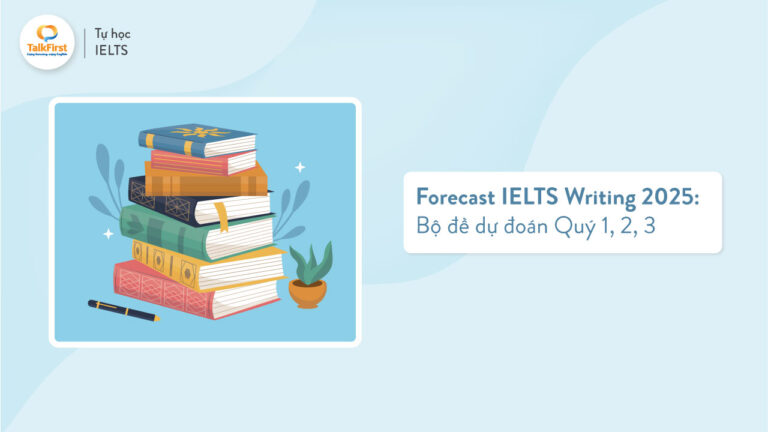Đề thi IELTS Writing Task 2 ngày 26/11/2022 yêu cầu thí sinh nêu ý kiến riêng về quan điểm “công nghệ truyền thông hiện đại đang có một số tác động tiêu cực đến các mối quan hệ xã hội”. Để ghi được điểm cao ở dạng đề này, thí sinh cần biết cách triển khai và lên ý tưởng cho câu trả lời.
Hãy cùng TalkFirst phân tích dạng bài mẫu đề thi IELTS Writing Task 2 ở bài viết dưới đây để note lại một số từ vựng quan trọng ở dạng bài này nhé!

ĐỀ THI
| Many people think modern communication technology is having some negative effects on social relationships. Do you agree or disagree? |
DÀN BÀI
Introduction:
- Giới thiệu đề tài: ảnh hưởng của mạng xã hội và các thiết bị công nghệ đến các mối quan hệ xã hội.
- Report + paraphrase ý kiến đề cho. Lưu ý: Bắt đầu bằng “It is believed that…” hoặc những cách diễn đạt tương tự.
- Nêu quan điểm của người viết: Partly agree.
Body 1: Những điểm đúng của ý kiến đã cho:
- Topic sentences: Modern communication technology can have negative impacts. However, these are often caused by people’s overuse.
- Main idea 1: It isolates people.
- Example: Friends who meet up at a cafe are constantly using their phones. Parents and children spend their evenings on social media rather than interacting with each other.
- Main idea 2: It easily leads to conflicts.
- Explanation: People have difficulties expressing their emotions and attitudes through texts, causing miscommunications and quarrels.
Body 2: Những điểm chưa đúng:
- Topic sentence: Modern communication technology can be helpful, too.
- Main idea 1: It connects people from a distance.
- Example: Students who study in a different town or in a foreign country can constantly stay in touch with their family.
- Main idea 2: It allows people to expand their social circles.
- Example: Facebook groups enable people of the same interest in a particular field such as art and language acquisition to connect and exchange knowledge.
Conclusion:
Khẳng định lại quan điểm của người viết: Modern communication technology only seems to pose a threat to the quality of interpersonal relationships when we misuse it.
BÀI VIẾT
The influence of social media and technological devices on social relationships is a topic that has gained considerable attention. While they are sometimes believed to do damage to interpersonal communication, this, in my opinion, need not always be the case.
One of the most well-known reasons why technology is often blamed for our communication problems is because people become isolated as they use it. It is, in fact, not difficult to see friends who meet up at a café end up attached to their phones, or parents and children spend their evenings on social media rather than interacting with each other. Another limitation can be observed from the conflicts happening online. People have difficulties expressing their emotions and attitudes through texts, causing miscommunications and quarrels. These problems are, however, often caused by people’s abuse of supposedly helpful tools.
Our interaction, on the other hand, is enhanced with the assistance of modern communication technology. Having the ability to connect people from a distance, it helps students who study in a different town or in a foreign country, for example, to constantly stay in touch with their family. In addition, it also allows people to expand their social circles as they join various online communities. Facebook groups, for instance, enable people of the same interest in a particular field such as art or language acquisition to connect and exchange knowledge.
In conclusion, for any tool ever created by humans, including communication technology, drawbacks are inevitable. However, these communication aids only seem to pose a threat to the quality of interpersonal relationships when we misuse them.
263 words – Band 7.0+ – Written by TalkFirst
TỪ VỰNG
- Interpersonal [adj]: connected with relationships between people (giữa người với người).
- Need not do something [modal verb]: used to state that something is not necessary (không nhất thiết).
- Isolated [adj]: without much contact with other people (cô lập).
- End up [phrasal verb]: to find yourself in a place or situation at the end of a process or period of time (kết thúc bằng việc gì/ở đâu).
- End up doing something: I ended up doing all the work myself.
- End up + adj: They end up attached to their phones.
- End up + adv/prep: If you go on like this you’ll end up in prison.
- Attached to something/someone [adj]: liking somebody/something very much (gắn chặt vào cái gì/ai đó).
- Abuse/misuse of something [n]: the use of something in a way that is wrong or harmful (lạm dụng cái gì).
- Circle [n]: a group of people who are connected because they have the same interests, jobs, etc. (vòng kết nối).
- Inevitable [adj] = unavoidable [adj]: that you cannot avoid or prevent (không thể tránh khỏi).
- Pose a threat to someone/something [phrase]: cause danger to someone/something (gây ra mối đe doạ).
Tham khảo: Bài mẫu đề thi IELTS Writing Task 2 ngày 27/10/2022
Trên đây TalkFirst đã hướng dẫn các bạn phân tích bài mẫu đề thi IELTS Writing Task 2 ngày 26/11/2022. Hy vọng bài viết hữu ích này sẽ giúp bạn có một kỳ ôn luyện IELTS Writing Task 2 thật tốt. Hãy cập nhật xu hướng ra đề và đề thi IELTS Writing 2023 được cập nhật nhanh nhất tại TalkFirst nhé!



